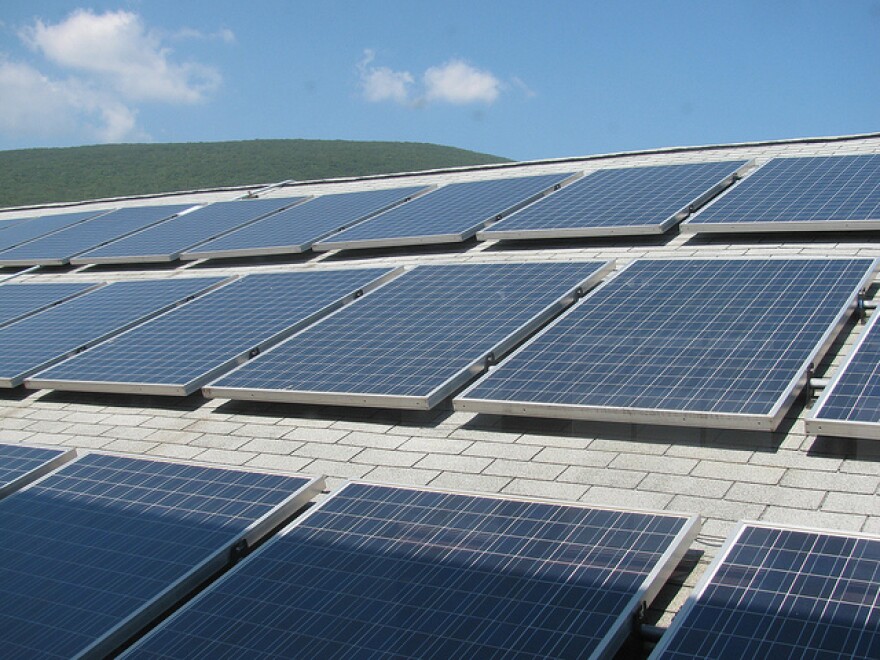About forty protesters rallied outside Duke Energy’s headquarters, chanting “Up with solar, down with coal,” as shareholders left the annual meeting. The clash between environmental advocates and Duke Energy about solar energy and fossil fuels also extended inside the meeting, even the demonstrations.
A group of solar energy advocates interrupted Duke Energy CEO Lynn Good’s opening remarks. Hulking security guards escorted them out.
The protesters particularly focused on Duke Energy’s opposition to a North Carolina bill that would allow other companies to sell solar power to homes. Other commenters were more general.
John Hinnant, a retired science teacher who says he’s held Duke stock for over 50 years, asked about the greenhouse gases from Duke’s fossil fuel plants causing climate change.
“At what level will Duke take faster action to switch to renewables?” Hinnant asked.
Good defended her company.
“Our carbon emissions are down over 20 percent from 2005,” Good said. “We have closed half of our coal plants in North Carolina. And as I mentioned in my remarks, we have invested in solar in this state, bringing us to third in the nation.”
The debate gets at Duke’s mixed record on solar energy. The company has begun actively contracting and building large solar farms in North Carolina; it has a renewable subsidiary that’s highly active in the Western United States.
On the other hand, in North Carolina, Duke has opposed the rooftop solar bill, contracts that force it to buy power from private developers, and the rate it pays homeowners who do have rooftop solar panels. The company projects in 15 years solar will make-up about 4 percent of its energy mix. The demands for more, Good said, as the comments kept coming, are impractical.
“Solar we believe will be increasingly important, but there are some practical applications I need to share with you,” Good said. “Solar only works about 20 percent of the time. I cannot provide 24/7 reliability of power on solar energy alone.”
Good says roughly half of North Carolina’s energy is already carbon-free; it comes from nuclear power.




